|
|

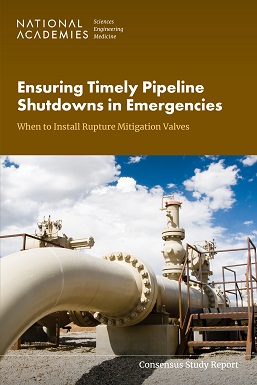 Ensuring Timely Pipeline Shutdowns in Emergencies: When to Install Rupture Mitigation Valves
2/15/2024 3:18:16 PM
Ensuring Timely Pipeline Shutdowns in Emergencies: When to Install Rupture Mitigation Valves
2/15/2024 3:18:16 PM
Since 2022, automatic or remote-control shutoff valves have been required on new hazardous liquid and gas transmission pipelines located in or near populated and environmentally sensitive areas. They are intended to enable faster shutdowns of ruptured pipe segments. However, the requirement for “rupture mitigation valves” does not apply to pipelines installed prior to 2022. This report examines the regulatory requirements that apply and recommends options for making sounder decisions about when to instal...
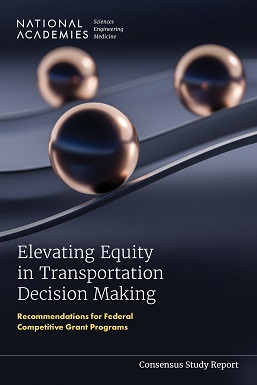 Elevating Equity in Transportation Decision Making: Recommendations for Federal Competitive Grant Programs
2/13/2024 3:00:15 PM
Elevating Equity in Transportation Decision Making: Recommendations for Federal Competitive Grant Programs
2/13/2024 3:00:15 PM
There has been a recently large increase in competitive federal grant programs for transportation, and the U.S. Department of Transportation (USDOT) has considerable control over how the programs are structured and the funds awarded to states and other applicants. With this, USDOT has asked TRB and the National Academies to review the ways USDOT can emphasize and promote equity within the competitive grants process. TRB Special Report 348: Elevating Equity in Transportation Decision Making: Recommendatio...
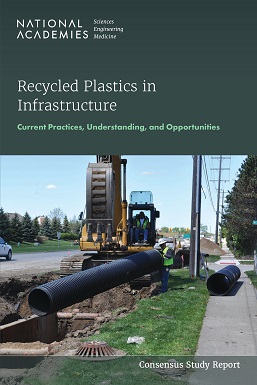 Recycled Plastics in Infrastructure: Current Practices, Understanding, and Opportunities
7/18/2023 1:00:00 PM
Recycled Plastics in Infrastructure: Current Practices, Understanding, and Opportunities
7/18/2023 1:00:00 PM
In the U.S., most plastics waste is disposed in landfills, but a significant amount also ends up as litter on land, rivers, and oceans. Today, less than 10 percent of plastics waste is recycled in the U.S. annually. The use of recycled plastics in infrastructure applications has potential to help expand the market and demand for plastics recycling. These are among the findings in TRB Special Report 347: Recycled Plastics in Infrastructure: Current Practices, Understanding, and Opportunities from the Tran...
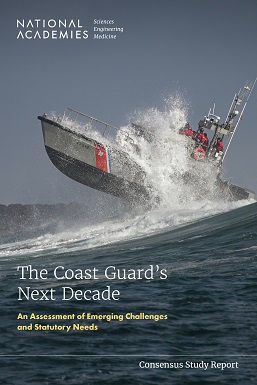 The Coast Guard’s Next Decade: An Assessment of Emerging Challenges and Statutory Needs
5/23/2023 3:45:39 PM
The Coast Guard’s Next Decade: An Assessment of Emerging Challenges and Statutory Needs
5/23/2023 3:45:39 PM
In the face of climate change, technological innovation, and global strategic competition, the U.S. Coast Guard will need to respond to many developments in the maritime domain over the next decade. The Coast Guard likely has sufficient statutory authority to respond to most of these developments, but some developments may call for new or clarified statutory authority as well as coordination with international bodies. Current statutory manning requirements, for example, will limit the Coast Guard’s abili...
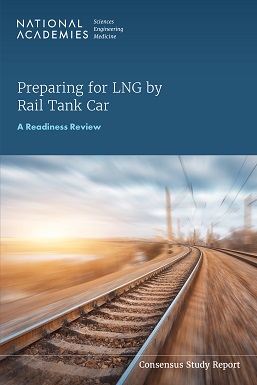 Preparing for LNG by Rail Tank Car: A Readiness Review
9/9/2022 2:00:02 PM
Preparing for LNG by Rail Tank Car: A Readiness Review
9/9/2022 2:00:02 PM
Shipping liquefied natural gas (LNG) by rail tank car is a viable mode in U.S. regions where the natural gas pipeline network is limited. Before the first bulk shipment of LNG by rail tank car, the National Academies of Sciences, Engineering, and Medicine recommends a review of the research and testing done so far on safety assurance, especially for the design of the tank car, and follow up with activities if warranted. TRB Special Report 345: Preparing for LNG by Rail Tank Car: A Readiness Review , from...
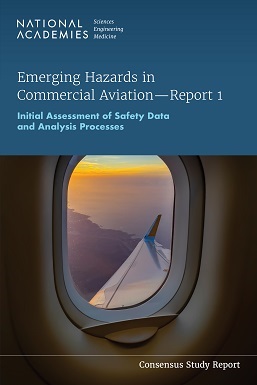 Emerging Hazards in Commercial Aviation—Report 1: Initial Assessment of Safety Data and Analysis Processes
8/1/2022 2:00:01 PM
Emerging Hazards in Commercial Aviation—Report 1: Initial Assessment of Safety Data and Analysis Processes
8/1/2022 2:00:01 PM
Commercial aviation safety in the United States has improved more than 40-fold over the last several decades, according to industry statistics. The biggest risks include managing safety in the face of climate change, increasingly complex systems, changing workforce needs, and new players, business models, and technologies. TRB Special Report 344: Emerging Hazards in Commercial Aviation—Report 1: Initial Assessment of Safety Data and Analysis Processes is the first of a series of six reports that will be ...
 Strengthening U.S. Coast Guard Oversight and Support of Recognized Organizations: The Case of the Alternate Compliance Program
12/23/2021 3:00:00 PM
Strengthening U.S. Coast Guard Oversight and Support of Recognized Organizations: The Case of the Alternate Compliance Program
12/23/2021 3:00:00 PM
Partly in response to a 2015 cargo ship sinking, the U.S. Coast Guard has put in place and proceeded to implement a well-conceived organizational and procedural framework for supporting and overseeing “recognized organizations,” particularly those in the Coast Guard’s Alternative Compliance Program. TRB Special Report 343: Strengthening U.S. Coast Guard Oversight and Support of Recognized Organizations: The Case of the Alternate Compliance Program recommends a series of steps the Coast Guard should take ...
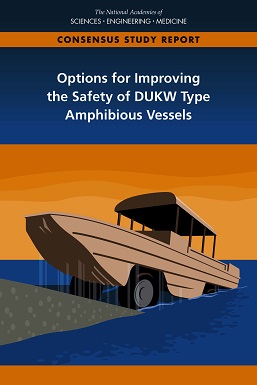 Options for Improving the Safety of DUKW Type Amphibious Vessels
12/16/2021 3:00:00 PM
Options for Improving the Safety of DUKW Type Amphibious Vessels
12/16/2021 3:00:00 PM
To ensure the safety of passengers and crew on DUKWs — amphibious vehicles also referred to as duck boats — the United States Coast Guard (USCG) should issue a range of new guidelines and requirements. TRB’s Special Report 342: Options for Improving the Safety of DUKW Type Amphibious Vessels recommends that the USCG use a consistent risk-assessment methodology and update its regulations and enforcement practices in a way that reflects the variable levels of risk to passengers and crew.
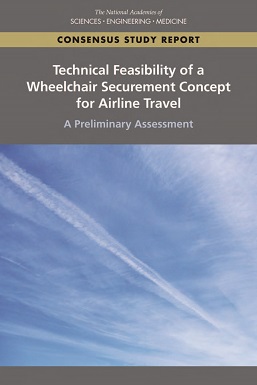 Technical Feasibility of a Wheelchair Securement Concept for Airline Travel: A Preliminary Assessment
9/15/2021 3:00:02 PM
Technical Feasibility of a Wheelchair Securement Concept for Airline Travel: A Preliminary Assessment
9/15/2021 3:00:02 PM
There appear to be, in this preliminary assessment, no formidable issues that present design and engineering challenges for installing in-cabin wheelchair securement systems in airplanes. While equipping enough airplanes with securement systems to provide meaningful levels of airline service would require substantial effort, the types of cabin modifications required to provide the needed space and structural support would likely be of moderate technical complexity for many individual airplanes. TRB’s Spe...
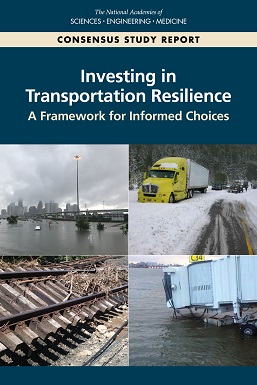 Investing in Transportation Resilience: A Framework for Informed Choices
8/5/2021 3:02:47 PM
Investing in Transportation Resilience: A Framework for Informed Choices
8/5/2021 3:02:47 PM
Significant progress has been made over the last decade in integrating resilience criteria into transportation decision-making. A compelling case remains for investing in making transportation projects more resilient in the face of increasing and intensifying storms, floods, droughts, and other natural hazards that are combining with sea-level rise, new temperature and precipitation norms, and other effects from climate change. TRB’s Special Report 340: Investing in Transportation Resilience: A Framework...
|
|
|